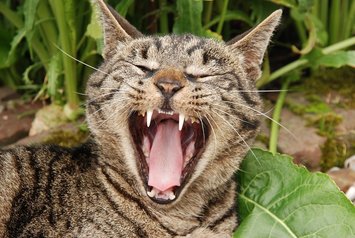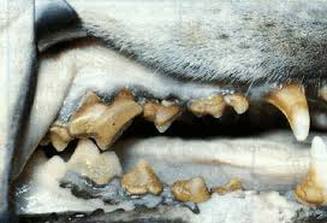|
Keeping the Pearly Whites, Pearly White
Here at NOAH, we perform dental cleaning and polishing to prevent dental disease. This is recommended yearly for our furry friends that have consistent in-home care and a proper diet. When undergoing a dental cleaning or procedure, cats generally require 15-20 minutes under anesthesia and dogs generally require 30-40 minutes. However, if any extractions or major abscess treatment needs to be done, then it could take quite a while longer. Pricing varies depending on age, size of pet and whether or not it is a routine cleaning or not. We do not offer estimates over the phone due to this reason but we would happily see your pet for a free techinician examination and provide an estimate for you that is geared towards your pet's specific needs and situation. The pricing will include hospitalization, premedication, human grade anesthesia induction, monitoring during anesthesia, dental scaling above and below the gum line, comprehensive evaluation of each tooth, polishing and fluoride application. If any other treatment may need to be performed (i.e. tooth extraction, sutures, etc.), we will give you an approximate estimate. Our goal is to get and maintain a healthy and comfortable mouth for your pet. How does dental disease start?Dental disease starts with the accumulation of plaque. If plaque remains for 48 hours it turns into a rock hard substance called tartar. Plaque can be removed by brushing whereas tartar can only be removed by scaling. At first the gums (gingiva) will become red and swollen. Most pets won't have any symptoms but sometimes they will drool, hesitate while eating, or stop eating dry food. Bacteria infect the area causing bad breathe. Then periodontitis (the progressive loss of bone surrounding the teeth) starts to develop. This bone loss is irreversible . If this is allowed to continue, the tooth/gum will become painful and eventually the tooth will become loose and fall out. Another concern with the bone is infection. Bone infections can be severe enough to cause fractures or abcesses that drain onto the face or into the nose. As pets eat, bacteria can enter the bloodstream through the inflamed tissue and damage other organs such as liver, heart, or kidneys. In addition, airborne bacteria are continually inhaled which can eventually lead to lung problems. Why does dental develop and are there breeds that are more prone?There are many reasons and causes that can lead to the development of dental disease. Smaller breeds are more prone to accumulating tartar and developing severe bone infections sooner compared to large breeds. The genetics of pets when it comes to teeth is very similar to humans. Some people are genetically prone to getting cavities as are certain breeds and bloodlines. We recommend for any pet: daily brushing, dry food (preferably Hill's Prescription Diet T/D), tartar control chews, and/or daily antibacterial rinses. We do not recommend offering bones due to the amount of fractured teeth are caused by chewing on them. What an idea of what your pet's teeth needs are?We would be more than happy to have you and your fur baby come in so we can tailor a plan to you and your pet! Give us a call to set up an appointment at 801-782-4401! We look forward to hearing from you!
5 Comments
8/3/2017 10:09:59 am
My family and I recently adopted a 12-week old puppy, and I want to learn all I can about taking proper care of him. It is really good to know that not eating dry food can be a sign of a toothache in a dog. In my opinion, taking proper care of your pets is the key to ensuring their happiness. Thank you for the helpful information!
Reply
3/22/2018 05:36:56 am
Dental care is very much important for leading a healthy life. Like human being pets are also suffering from many kinds of dental issues. Which is become more critical day by day if properly not treated. So considering the life of your lovely furry friend it is important to take care of the pet if you find any disorder in their behavior. Controlling their diet, taking proper dental care of them helps to leading a healthy life to live.
Reply
10/15/2020 09:48:07 am
I had no clue that pets could get dental conditions too, such as periodontitis which is an infection in the gums. My brother is about to get a golden retriever next week. I'll pitch this idea to him so he could take care of his dog's dental health at such an early age.
Reply
12/11/2021 05:03:27 pm
The American Animal Hospital Association recommends that annual cleanings start at age 1 for cats and small- to medium-breed dogs,
Reply
Leave a Reply. |
Author:NOAH Staff Archives
April 2022
|

